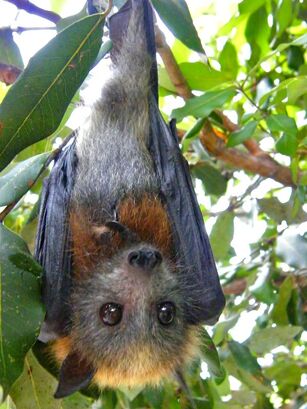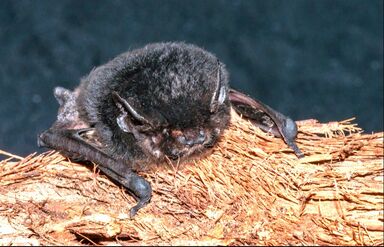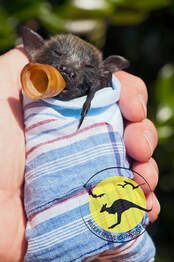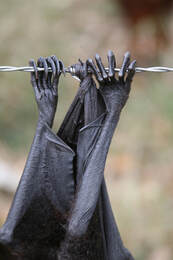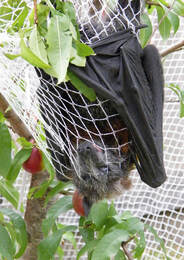|
THE SHOALHAVEN BAT CLINIC |
|
The Bat Clinic is a purpose-built facility, located in the Shoalhaven area. It is home to the Wildlife Rescue South Coast rehabilitation unit for native flying-foxes and microbats. It is owned and operated by experienced wildlife carers authorised by Wildlife Rescue South Coast. Our facility has a small rehabilitation clinic with ICU facilities, a fit-for-purpose mobile rescue trailer and flight aviaries for all stages of the rehab process, from creche all the way up to release. We also have an off-site release aviary for flying foxes, close to the local flying-fox camp. We gratefully acknowledge the local veterinary professionals who provide us with all the veterinary services, direction and advice we need for the bats in our care. We provide a 24/7 rescue service across our licenced area. We support and work with other organisations in coordinating emergency response preparedness. We educate the public and work with National Parks, NSW Wildlife Council and other organisations to managing emergency and mass events. Our facility is located on private property and is entirely operated by volunteers. The Shoalhaven Bat Clinic is managed by current species coordinator, Trista Kyriacou, who has been working with flying foxes and microbats since 2014. She is supported by a team of dedicated volunteers who each day offer their time to cleaning duties, food preparation, rehabilitation support, rescues and feeding activities for the bats in care. The Shoalhaven is home to the Grey Headed Flying Fox as well as over 33 known species of microbats. Our area has also been known to have small numbers of Little Red Flying Foxes and Black flying Foxes from time to time. |
|
WHY HELP BATS? |
|
Bats include some of the most important and misunderstood animals in Australia. They play an essential role in pest control and seed dispersal. Flying-foxes are our night-time pollinators, with many Australian native species flowering during the night. They can travel a distance of around 60km each night, making them our only long-distance pollinator and vital in keeping our environment flourishing and keeping our forests healthy. Microbats play a critical role in our ecosystem as insectivores, devouring around 40% of their body weight in flying insects per night, including disease carrying mosquitoes. They provide an economic value for farmers by providing natural and free pest control and benefits the health of trees, pastures, crops and revegetated areas. Without bats, many ecosystems would gradually die. In the USA, where microbats numbers declined due to "white nose syndrome" experts have estimated the cost of that decline to US agriculture to be several billion dollars. |
|
WHY DO BATS COME INTO CARE? |
|
There are many reasons that Flyingfoxes and microbats come into care:
|
|
FOUND A BAT NEEDING HELP? |
|
It is important that you never handle or touch any bat unless vaccinated. Bats have the potential to carry disease. In Australia, we have Australian Bat Lyssavirus, related to rabies, that is only contracted from a sick bat through a bite of scratch. Less than 1% of the population has the virus, however, there is a risk and that risk should always be avoided to protect you and protect the animal from unnecessary euthanasia. If you find a microbat in your house, or a sick or injured flying-fox - always call for a trained and vaccinated wildlife carer. On the NSW south coast, that's the Shoalhaven Bat Clinic on 0418 427 214. |

